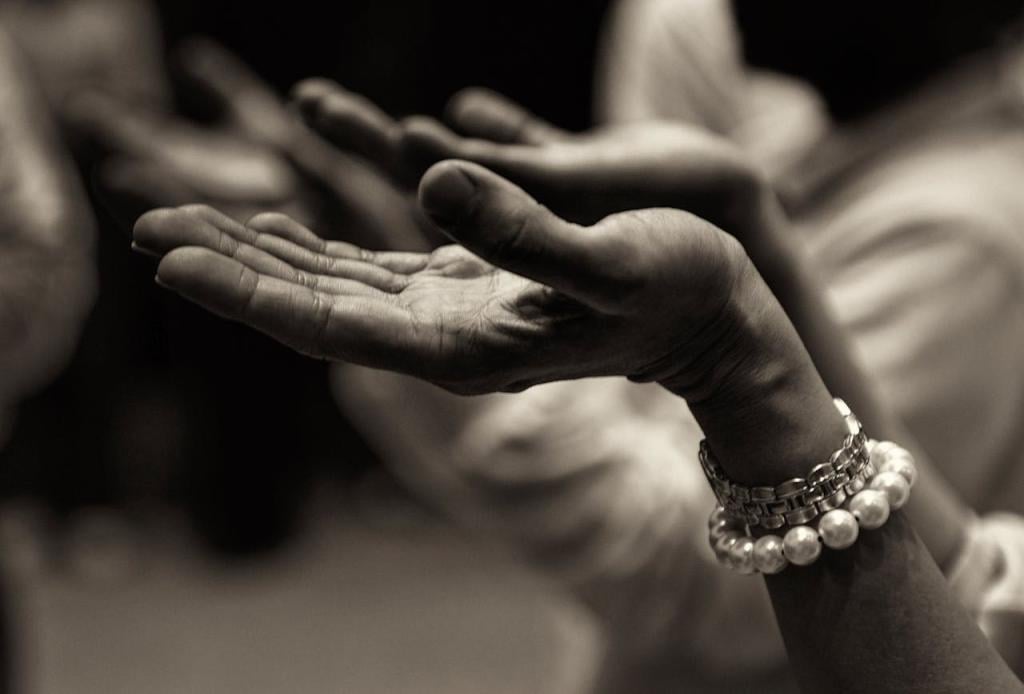
Excerpt from the book Copyright © 2025 by Karl Forehand
Does God Require Worship?
“The one who knows all the answers has not been asked all the questions.” – Confucius
Much of the work I’ve done on my mental health and trauma revolves around addressing my low self-esteem and need for approval from others. Each person is unique, and our life experiences impact us differently. However, seeking approval from others often becomes more of a weakness than a strength. This perspective overlooks that we can feel comfortable even alone, provided our connections remain healthy. Depending on external approval can lead to immature behavior.
I observe many mistakes among religious leaders, including narcissistic demands for their congregations to follow and elevate them. This allegiance differs from loyalty to a boss, commitment to a job, or friendship. Narcissists insist on complete devotion and unquestioning loyalty, even when they violate behavioral boundaries. They expect special treatment, believing that followers should view them as exceptional.
We would never claim to worship a pastor or legislator; however, we elevate them and permit them to operate under different rules. In churches, members submit to the narcissist, suppress their inquiries, and ensure that the organization and leadership consistently project a positive image.
We are currently catching up with the science surrounding narcissists and uncovering their negative impact on society and the churches they lead. A new study by Birgit Schyns, Distinguished Professor of People and Organizations at NEOMA Business School in France, along with colleagues from Cardiff University Business School and the Department of Psychology at Durham University, sheds light on the issue by examining the effects of ‘vulnerable’ narcissists, particularly in organizations facing a crisis. They state:
“Deeply insecure, defensive, and neurotic, vulnerable narcissists behave in ways designed to mask their sense of their incompetence and inadequacy—such as micromanaging, failing to give employee guidelines, blaming others for their shortcomings, and exhibiting a heightened need for affirmation”[1]
As we examine the character traits of our narcissistic leaders, especially within churches, we start to recognize the link to much of the trauma and devastation present in organized religion. The insecurity of what I sometimes refer to as Toddlers in Charge can lead to power imbalances, inflict trauma on the congregants, and create a demand for unquestioned loyalty and devotion. Although they encourage us to worship God, congregants often feel that they serve and worship the leadership because it is mandated.
Only an insecure, narcissistic leader needs constant praise or affirmation of their greatness. Occasionally, we encounter a genuinely confident, self-assured individual who illustrates the difference between those who require continual reassurance and those who are secure in themselves.
For far too long, especially in the United States, we have chosen narcissistic leaders, politicians, and pastors. Their craving for recognition and validation drives them to succeed in various sectors, including business, government, and religion.
However, this distorted view of leadership results in the mistreatment and neglect of everyday community members. Ordinary citizens have started to fight back. We are becoming increasingly aware of abusive leaders and are demanding accountability for their abandonment of their original mission and their failure to treat others with respect and fairness.
This slow and painful process necessitates a certain level of awakening. Organizations condition us to be dependent on their narcissistic leaders, and we endure a form of abuse when we ask too many questions or advocate for justice.
Evaluating these matters through deconstruction enables individuals to reflect on their understanding of God. If God is our ultimate leader and is perfect, He should not be insecure. The “Lord of all Lords” and “King of all Kings” should have no reason to seek constant praise. A God who claims to be all-powerful, all-knowing, and entirely self-aware would not require continual reassurance of His greatness.
The most incredible people I’ve ever met are those who are self-aware and comfortable with themselves.
Why would the supreme ruler of the universe need reassurance? Regardless of our politics, as we mature and ask the right questions, it becomes easier to identify the authentic leaders who have come before us. You may not agree with their politics or even share the same religion, but the genuine, self-assured leader stands apart from the narcissistic wolf pack of leaders seeking their own gain.
Why limit God to that same box? Christianity frequently prompts Christians to do this. When things go well, they quickly give credit to God, and when they don’t, they blame themselves because they can’t accept that their perceptions of God might be flawed.
If God requires or accepts worship, then He is not perfect. “Normal” people typically don’t have fellowship, companionship, or mutual love with narcissistic leaders. Worshipping a being does not bring us into the right relationship with it; instead, it only distances us further and creates harmful power imbalances. We can respect our leaders and cooperate without overtly highlighting our inequality.
I have been on disability for several years due to my stroke. My current situation is that I cannot do as many things as other people. Most people treat me with respect, and we interact and cooperate, but I don’t feel the need to elevate or idolize those who are differently abled. Just because they can do something for me doesn’t make them better than I am. I am different but not inferior to them.
If God is real, He should be superior to me in many ways. He should use His abilities and power to improve everything in the world. If God possesses all these capabilities that could assist me, He/She/They should help me without requiring or desiring my “worship” in return for being better. The idea that God is better than me is under intense scrutiny as I explore and uncover truths, especially since He seems more like these narcissistic “toddlers” than many humans I admire.
Questions About Questions
What belief(s) did you inherit concerning this question?
How is your response to this question changing?
[1] https://www.managementtoday.co.uk/why-vulnerable-narcissistic-leaders-dangerous/indepth/article/1839373#
Learn to be Where You Are (Presence)
Learn to be Who You Are (Authenticity)
Finding Regulating and Somatic Healing
Are you genuinely committed to deconstruction and seeking more profound answers?
If that’s the case, this book was created for you. As a former pastor, I made the mistake of deconstructing a bit and then trying to start something new, as I was trained to do. The problem with that approach is that I wasn’t ready to begin something new.

I hadn’t delved deeply enough or asked enough questions. The first stage of deconstruction typically includes assessing our beliefs regarding hell and the afterlife, supporting queer individuals and women in their fight for equality, and achieving a better understanding of racism and privilege.
Many people in deconstruction communities expend significant effort criticizing Evangelicals and attempting to gain a following. While I believe they deserve intense criticism, this strategy fails to effectively tackle the problem because they generally don’t listen to us!
Our tendency to punish our former organizations sometimes overlooks the challenging process of healing and growth. It is the same trap we fell into in our former associations.

Campfires occupy a special spot in the mosaic of history. They act as communal hubs across different cultures and faiths. The campfire’s circular design fosters equal participation within the collective group. The flames at the center draw our focus and encourage face-to-face interactions as we exchange experiences, wisdom, and insights about the world beyond. It is where legendary myths and tales are born.
Order Now – Study Questions in each chapter!
This book is named Campfires in the Desert as it stems from nearly 400 discussions we held with individuals on our podcast, The Desert Sanctuary, and our aspiration to improve.
Available now!
Thanks for considering us, autographed copies are $20
Karl Forehand Campfires in the Desert – A Soft Book Release. Karl Forehand is a former pastor, podcaster, and award-winning author. His books include Out into the Desert, Leaning Forward, Apparent Faith: What Fatherhood Taught Me About the Father’s Heart, The Tea Shop, and Being: A Journey Toward Presence and Authenticity. He is the creator of The Desert Sanctuary podcast and community. He has been married to his wife Laura for 35 years and has one dog named Winston. His three children are grown and are beginning to multiply! You can read more about the author here.















